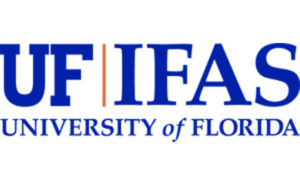
LOGO: UNIVERSITY OF FLORIDA
The University of Florida’s Institute of Food and Agricultural Sciences (UF/IFAS) issued a press release regarding its extension office teaming with the Florida Department of Agriculture and Consumer Services (FDACS) to “identify ways to provide online testing for certified pesticide applicators while in-person testing is unavailable due to COVID-19.” This includes exploring with a third-party vendor the ability to provide online testing.
Because all UF/IFAS Extension events and programs have been postponed or canceled until at least April 30, there is a need for a web-based solution. UF/IFAS reports there are more than 60,000 licensed pesticide applicators in the state, with approximately 9,000 exams administered annually. For now, FDACS has granted a 30-day extension for certified applicators in Florida whose licenses are expiring. UF/IFAS suggests license holders looking for continuing education units (CEUs) can do so online here.
PMPs AND PUBLIC HEALTH
In other UF news, Dr. Faith Oi, a member of Pest Management Professional’s (PMP’s) editorial advisory board and the director of Pest Management University, created a fact sheet that offers six tips for pest management professionals in light of the new coronavirus (COVID-19) pandemic. As she told PMP, “These are some practices PMPs can institute to help keep public health pests in check, while retaining customers who will need services.” Here are six of them:
- Within your companies, develop a communication strategy that emphasizes the importance of pest control as an “essential function” to public health to share with customers. Regular communications also may help with customer retention.
- Show concern for your customer’s concerns. Physical distancing, known as social distancing (6-foot perimeter), is required to reduce the spread of COVID-19. You already practice physical distancing when you apply pesticides to protect customers from pesticide drift.
- Minimize your exposure to COVID-19 in two major ways. First, wear the appropriate personal protective equipment (PPE). We use PPE for pesticides, rodent, bird and vector control work. PPE for you will be critical under current circumstances. Second, limit services to outside where possible. Many pests start from the outside, including those that endanger food safety, eldercare and other health-related facilities — rodents, bats, stinging insects, mosquitoes, flies, ticks, fleas, etc.
- Consider providing a call-ahead notification before performing a service, if you are not already doing so. This will allow you to inform customers of any service modifications and social-distancing steps you are taking to minimize exposure to COVID-19 before arriving on property.
- If you must go inside, maintain physical distancing of at least 6 feet with your customers. You probably already practice physical distancing with customers of inside services. Politely ask clients to give you space to concentrate on what you are looking for during inspections and for their safety when using inspection tools.
- Use common sense. Wash your hands like you handled a pyrethroid. Don’t touch your face. Stay home if you are sick.
Read more COVID-19 coverage here: MyPMP.net/COVID-19
Leave A Comment